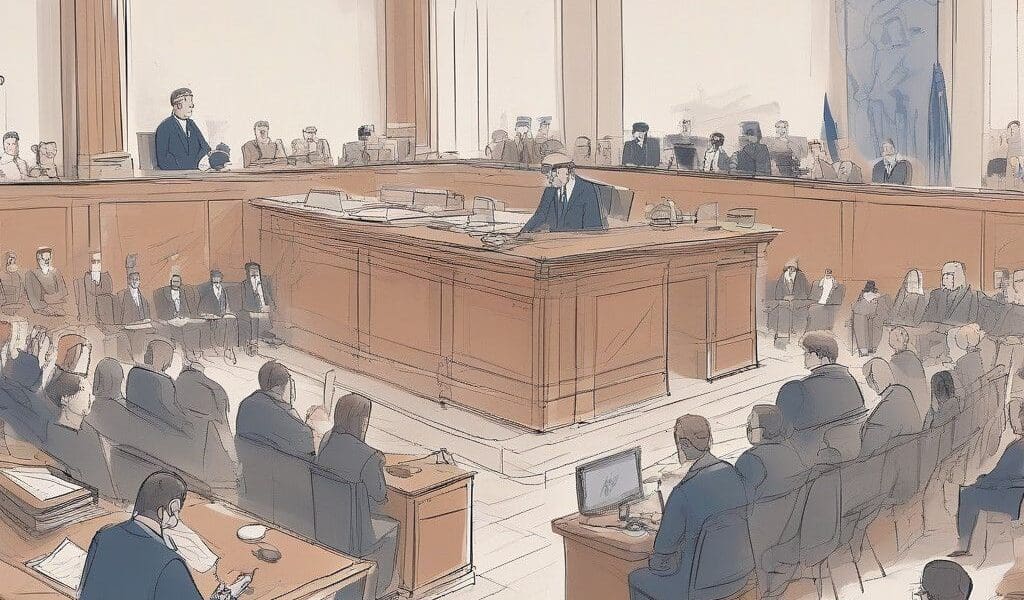Google Seeks Delay on Play Store Competition Ruling: What This Means for the Market
Google is once again at the center of a contentious legal battle, this time regarding its Play Store practices. Recently, a federal judge issued an injunction that could reshape the competitive landscape for app distribution on Android devices. The ruling, which is set to take effect on November 1, has prompted Google to seek a delay while it appeals the decision. Understanding the implications of this case is crucial for both consumers and businesses in the digital space.
The judge’s order stems from a lawsuit initiated by Epic Games, the creator of the popular game ‘Fortnite’. Epic alleges that Google has monopolized app distribution and in-app payment processes on Android, effectively limiting competition and innovation in the marketplace. A jury agreed with Epic’s claims, leading to the judge’s directive for Google to allow users to download apps from third-party platforms and utilize alternative payment methods for in-app purchases.
This ruling would effectively reduce Google’s control over app distribution, which has been a significant point of contention not just for competitors but also for regulatory bodies. In recent years, many tech giants have faced scrutiny over their market dominance, and Google’s situation is no different. The injunction specifically prohibits Google from entering agreements with device manufacturers to preinstall the Play Store and from sharing revenue generated through the store with other distributors. These measures seek to dismantle practices that many view as monopolistic.
Google argues that the implementation of this ruling could introduce serious security and privacy risks to users within the Android ecosystem. In its court filings, the tech giant asserts that allowing third-party app downloads could expose users to malicious software and compromise personal data. This is a compelling argument, as security is a top priority for users; however, it’s also perceived as a defensive strategy to protect its market share.
If Judge Donato denies Google’s request for a delay, the company plans to escalate the case to the 9th US Circuit Court of Appeals in San Francisco. Google has already filed a notice of appeal, indicating its preparation to challenge both the injunction and the related antitrust verdict. This legal wrangling underscores a pivotal moment in the tech industry, where the balance between fostering competition and ensuring user security and privacy is being critically examined.
The implications for app distribution on Android devices could be profound. If Google fails in its appeal and the injunction stands, the shift could encourage a new wave of competitors to enter the market. More choices for consumers could lead to better services and innovations in app technology, as developers explore new avenues for reaching users without the constraints of the Play Store.
Moreover, the ruling may set a precedent for how other major platforms manage their app ecosystems. For instance, if competitors like Apple are scrutinized similarly, we could see broader reforms across digital marketplaces. The European Union is already making strides in this direction with its Digital Markets Act, which aims to ensure fair competition among digital platforms.
Despite Google’s arguments about security risks, the company cannot ignore the realities of market forces. Consumer trust is paramount in today’s digital landscape, and companies that prioritize transparency and freedom of choice will likely endear themselves to users. The outcome of this case may very well reshape how users interact with their devices, as they are given more autonomy over app installations and payment methods.
In conclusion, while Google’s request for a delay is currently under consideration, the ruling from Judge Donato is emblematic of larger trends in the tech industry. As competition intensifies and consumers demand more control over their digital experiences, companies must adapt to an environment where regulatory scrutiny is prevalent. The outcome of this legal battle could very well redefine the future of app distribution, technology innovation, and consumer rights in the digital marketplace.








